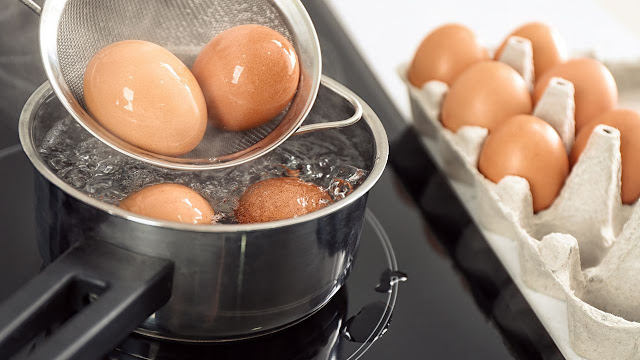Boiling eggs might seem like a straightforward task, but achieving that perfect texture—creamy yolk and firm whites—requires a bit of technique. Whether you’re making deviled eggs, egg salad, or just want a nutritious snack, here’s a foolproof guide to boiling eggs perfectly every time.
1. Choose the Right Eggs
For the best results, start with eggs that are slightly older rather than fresh. Fresh eggs are harder to peel and can be more challenging to work with. If you can, use eggs that have been in your fridge for about a week.
2. Prepare the Eggs
-
Start with Cold Eggs: Place your eggs in a single layer at the bottom of a saucepan or pot. Make sure not to overcrowd them.
-
Cover with Water: Add enough cold water to the pot to cover the eggs by about an inch. Using cold water ensures that the eggs heat up slowly and evenly, reducing the risk of cracking.
3. Boil the Eggs
-
Heat the Water: Place the pot on the stove and bring the water to a rolling boil over medium-high heat. Avoid using high heat, as it can cause the eggs to crack.
-
Start the Timer: Once the water reaches a rolling boil, reduce the heat to low and start your timer. The timing depends on how you like your eggs:
- Soft-Boiled Eggs: Cook for 4 to 6 minutes. The whites will be set, but the yolks will remain runny.
- Medium-Boiled Eggs: Cook for 7 to 9 minutes. The yolks will be mostly set but still slightly creamy in the center.
- Hard-Boiled Eggs: Cook for 10 to 12 minutes. The yolks will be fully set and crumbly.
4. Cool the Eggs
-
Prepare an Ice Bath: While the eggs are cooking, fill a large bowl with ice and water.
-
Transfer the Eggs: Once the eggs have finished cooking, use a slotted spoon to transfer them to the ice bath. Let them sit for about 5 minutes. This stops the cooking process and makes peeling easier.
5. Peel and Enjoy
-
Crack and Peel: Gently tap the egg on a hard surface to crack the shell, then peel it under running water to remove any tiny bits of shell.
-
Serve: Enjoy the eggs as is, or use them in your favorite recipes.
Additional Tips for Perfectly Boiled Eggs
- Prevent Cracking: To minimize the risk of cracking, consider adding a pinch of salt or a splash of vinegar to the boiling water. This can help strengthen the egg whites and reduce cracks.
- Freshness Test: If you’re unsure of the egg’s freshness, perform the water test. Place the egg in a bowl of water. Fresh eggs will sink and lay flat, while older eggs will stand upright or float.
- Storage: Hard-boiled eggs can be stored in the refrigerator, in their shells, for up to a week. If you’ve peeled them, store them in a covered container with a damp paper towel to prevent them from drying out.
Perfectly boiled eggs are a versatile addition to any meal, providing a great source of protein and nutrients. With these steps, you can ensure your eggs are cooked just the way you like them, every time.
Master the Art of Boiling Eggs! 🥚👨🍳 Whether you’re preparing a quick snack or a gourmet dish, follow these steps for perfectly boiled eggs. For more kitchen tips and recipes, explore our latest guides and cooking resources!
#PerfectlyBoiledEggs #EggCookingTips #KitchenHacks

